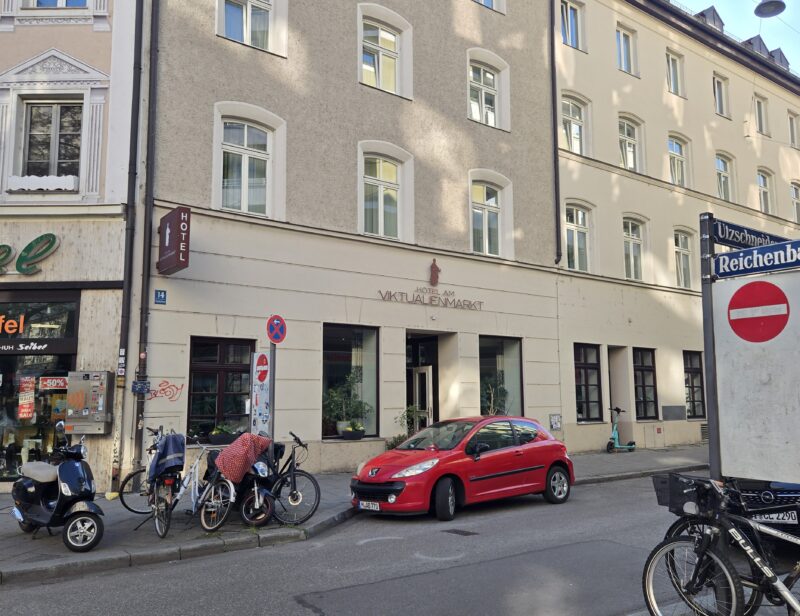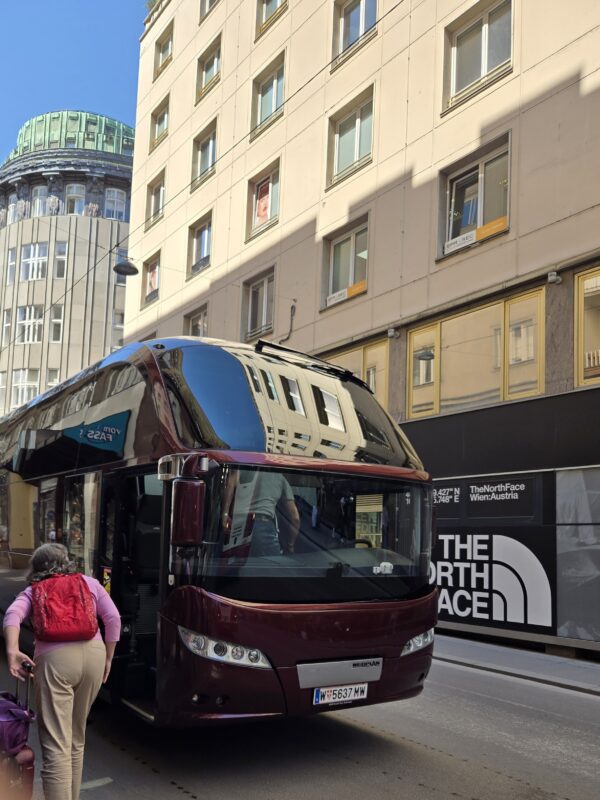
You are ready to travel the world and have a destination or two in mind. Now, you are faced with a big decision: which tour company should I pick? With thousands of tour companies in existence, it can be a daunting task to narrow down the list and ultimately select one.
Drawing on my experience in selecting tour companies, I have created this guide to help fellow travelers navigate the decision-making process and choose the best one for them.
Selecting a Tour Company
Let’s begin the search for your perfect tour company! 🔍
Before we dive into the tour selection process, I’m going to offer some quick pointers!
Low cost is not always less expensive: A lower-priced tour may be enticing, but it may ultimately cost you more in the long run. Sometimes, inexpensive tours have limited inclusions, so travelers would need to cover the cost of expenses such as airport transfers, transportation passes, admission tickets, optional activities, meals, and more. It is essential to channel your inner archaeologist and dig deep to understand what the tour price covers and what you’ll need to pay out of pocket.
Buyer beware, not all that glitters is gold: The pictures and testimonials on a travel website may be appealing, but they may not be authentic. To capture the attention of unsuspecting travelers, less reputable companies may use AI-generated images or images from other companies as a means to attract customers. The same goes for testimonials. Always read reviews from trusted third-party platforms, such as TripAdvisor, Trustpilot, and Google Reviews, and verify if the organization holds any relevant industry accreditations.
Search Criteria
Lodging
The best place to start is lodging, as that will significantly narrow down the possibilities.
Are you interested in deluxe accommodations with premium services, or are 3-star hotels and mom-and-pop inns acceptable to you? For outdoor adventure tours, do you prefer hotels or a rugged camping experience?
My best advice when it comes to lodging is not to focus on the price of the tour or adjectives being used to describe accommodations. Just because a tour is expensive, it does not mean your lodging will be a 5-star hotel or some swanky resort. And be wary when companies use words like “luxury” and “deluxe” to describe their accommodations; I’ve seen companies employ this marketing tactic when, in fact, they provide budget 2-star or 3-star lodging. Always review a tour itinerary to see which hotels will be used, and if the information is not listed, reach out to the company!

When traveling abroad, older hotels may not have elevators or accessible common areas and bathrooms. Contact the tour company regarding any necessary accommodations.
Important Note: Not all overnight accommodations are hotels. Some tours include overnight stays on a train or boat. If that is the case, I strongly recommend finding out which company manages the train or boat and conducting research to see if it has experienced any issues or safety violations. I learned my lesson after my first trip to Egypt (2010), which included 2 nights on board a sleeper train, an experience that was a nightmare.
Another factor to think about when it comes to lodging is location. Select a company that offers accommodations within walking distance to attractions and restaurants, or lodging near bus stops and metro stations. During my two trips to Europe, I have learned that it is invaluable to have a centrally located hotel or one that is easily accessible by public transportation!

For solo travelers who prefer not to share a room, make sure the tour company guarantees single rooms. Note that some companies charge a single supplement fee.
Transportation
Are you comfortable arranging your airport transfers, or would you prefer to have them handled by the tour company? When it comes to intercity travel, are you fine with long bus rides and overnight trains, or do you prefer flights?
Airport transfers can be a stressful component of travel, especially in countries with an unregulated taxi industry, no rideshare services, or limited public transportation. When searching for tour companies, I have noticed three things when it comes to airport transfers: 1) none provided, 2) provided on specific dates and times before a tour, and 3) provided and arranged according to a traveler’s flight schedule. If airport transfers are a must, always opt for option 3, a company that arranges transfers according to your schedule! Picking option 2 may leave you without a transfer if there are flight delays.

If your tour does not include an airport transfer, contact the tour hotel(s) as they may be able to arrange a private transfer. My tour hotels in Prague, Budapest, Munich, and Vienna all offered transfer services to and from the airport.
When planning your trip, remember to budget for transfers if they are not included in the tour cost. To give you a rough idea of how much transfers cost, this is what I have paid on my 2 trips to Europe: Prague – $32, arranged via Get your Guide; Budapest – 40€, arranged by the hotel; Munich – 16€, took the train from airport to hotel; Vienna – 60€, arranged by the hotel.
When it comes to transportation, intercity travel is a significant factor to consider, and for me, it can be a deal-breaker when selecting a tour company. When distances are significant between cities, some companies opt to use domestic flights between locations rather than have participants endure a long bus or train ride. Tours with internal flights may be slightly more expensive, but it is a worthwhile investment. Who wants to spend limited vacation time stuck in a bus for hours?
Itineraries
Would you like the opportunity to have free time to explore on your own, or would you prefer to have your whole day planned by the tour company?
Itineraries can make or break a vacation, so always pay attention to the details. If you enjoy having some free time to relax or explore at your own pace, you won’t appreciate an itinerary that is packed with activities from sunrise to sunset. On the other hand, if you would rather not hassle with planning and navigating a city on your own, then a tour with free time may be a nightmare. From experience, never underestimate the importance of selecting a tour itinerary that aligns with your travel style!
Some tour companies offer the best of both worlds: free time and optional activities scheduled during said free time. Optional activities are great for those who prefer to leave the planning and navigating to someone else. Note that optional activities are usually an additional cost, and it can get expensive if you sign up for multiple while on a tour.
One thing to be mindful of is tours that list in the itinerary cultural immersion experiences that involve visiting trade schools, “local stores”, special markets, etc. Sometimes, those visits are somewhat gimmicky and end with salespeople pressuring participants to purchase a product. During my 2018 trip to Egypt, our tour guide took the group to a carpet-weaving school, where the visit began with weaving demonstrations and concluded with a sales pitch. Not the best use of 2 hours when you’re in a country with so many amazing sites!
Free time is excellent when in cities with minimal language barriers and robust public transportation. I loved the free time I had during my two tours of Europe, and it was relatively easy to get around, thanks to the excellent transit systems. On the other hand, when I traveled to Egypt, on both trips, I chose companies that offered a full day of activities, as I was not going to attempt navigating Cairo on my own.
Meals
Do you like the convenience of having most of your meals planned? Or are you an adventurous foodie who enjoys discovering hidden culinary gems, attending festivals, and trying street food?
Tour companies will provide information on what meals are included each day of a tour, but they generally will not list the names of the restaurants. Additionally, the number of meals included varies between tour companies.
From experience, the included breakfasts are typically offered by the hotels, while lunches are generally not included in the tour. During my last three international trips, the only lunches provided were those on board a Nile River cruise (Trafalgar) and as part of cooking classes in Budapest and Salzburg (Rick Steves’ Europe).
Now, let’s discuss dinner. While many tour companies include a handful of dinners as part of the tour, the dinner experience varies greatly between companies. Some companies will take participants to charming local eateries offering a more authentic experience, while others may take participants to a more touristy spot. Another difference is that some tour companies include wine and beer as part of the meal, not just water and nonalcoholic beverages. Just as with lodging, the best advice is to contact the tour company for more information, especially if you are seeking a particular type of dining experience.

Higher-end tours and those that include a cruise may have a dress code for dinner.

While most companies provide accommodations for individuals with food allergies or dietary restrictions, it is recommended to contact them to confirm.
The more I travel, the more I prefer to have fewer included dinners for two reasons. First, as someone who follows a mainly vegetarian diet, with the occasional seafood dish, tour dinners are sometimes a gamble. I would rather check out local vegetarian restaurants or eateries with good vegetarian options. Secondly, sometimes, after a long day of sightseeing, I enjoy a low-key meal to unwind; a quiet café or pizzeria is my ideal way to end the night!
Other Points to Consider
To wrap up this travel guide, I will share a few more pointers on selecting tour groups.
Group Size
Some of the more popular, budget-friendly companies can have tour groups with upwards of 40 participants. Other companies specialize in small groups of 12 to 16 participants.
I traveled to Europe with Rick Steves’ Europe, which caps groups at 28 participants. My 2024 tour had 27 people, while my 2025 tour had 24 participants. While to me this is a good-sized group, others may find it too large.
Gratuities
A few companies handle all the gratuities throughout a tour, making it one less thing travelers need to worry about. These companies will provide tips to hotel staff, restaurant waitstaff, local guides, restroom attendants, bus drivers, and others on behalf of participants.
When I traveled to Egypt with Trafalgar, I was responsible for gratuities, including tipping the guide at the end of the trip. Rick Steves’ Europe handles most of the tipping, which makes life a bit easier. I just had to tip my taxi and ride-share drivers, waitstaff when I dined without the group, and hotel staff for extra nights not included in the tour.
Travel Perks
Some tour companies offer perks and incentives to travelers. As a welcome gift, a few companies will send participants items such as guidebooks, luggage tags, wallets or money belts, duffel bags, and other useful items. Others, like Trafalgar and Rick Steves’ Europe, offer tour alumni discounts to reward travelers who have previously traveled with the company.
Refund and Cancellation Policies
Always read the fine print associated with refund and cancellation policies, especially if your travel plans are not 100% certain. Note the cancellation timeframes required to qualify for a deposit refund or travel credit. Some companies offer more flexibility in these matters, while others are strict and provide no refunds or credits.

Travelers, what other things do you look for in a tour group? Drop your thoughts in the comments section. ⬇️










Leave a Comment